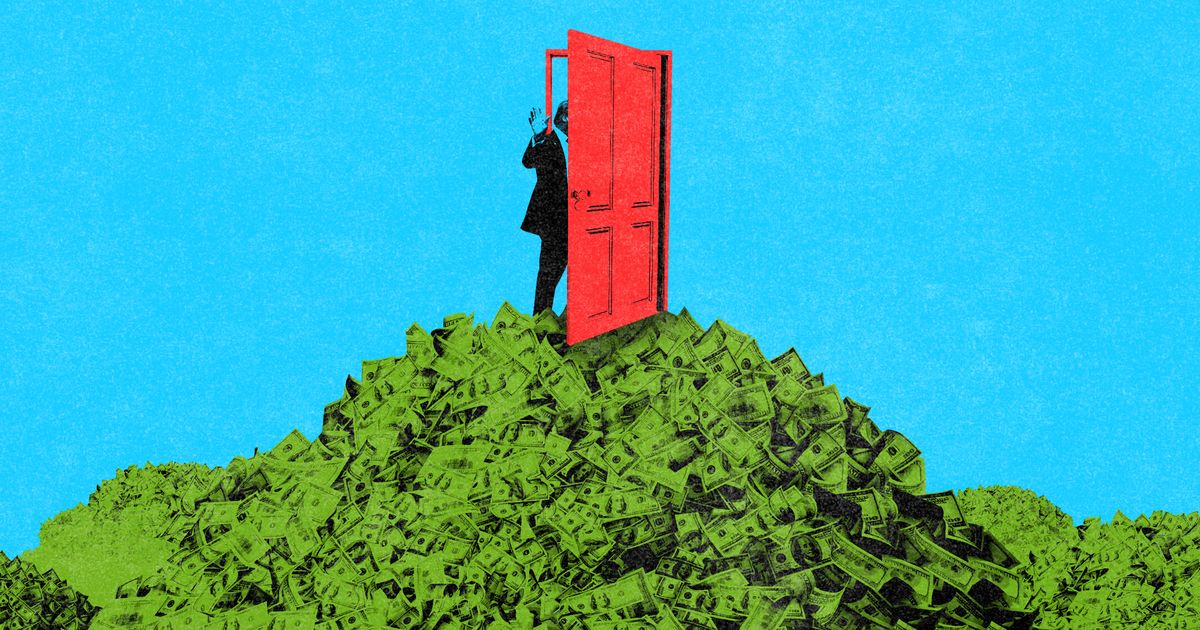Trump’s Billionaire Boom

🌈 Abstract
The article discusses how conservative billionaires have flocked to support Donald Trump's 2024 presidential campaign, despite Trump's populist image as the enemy of the well-to-do. The article explores the various factors driving this shift, including the end of the Republican primary, Trump's strong polling and penchant for graft, and the wealthy conservatives' moral beliefs about taxation.
🙋 Q&A
[01] The Billionaire Surge to Support Trump
1. What are the key factors driving conservative billionaires to support Trump's 2024 campaign?
- The end of the Republican primary terminated hopes that wealthy Republicans could return their party to power without supporting Trump
- Trump's strong polling and penchant for graft increased the incentive for billionaires to make nice with him
- Wealthy conservatives hold moral beliefs that see proposals to raise taxes on the rich as an attack on liberty, akin to the Nazis' "war on the one percent"
- The huge amount of money at stake in the 2024 elections, with the potential to extend or let expire the Trump tax cuts, is a major incentive for billionaires to back Trump
2. How has Trump been able to maintain a populist image despite the support of billionaires?
- Trump's outer-borough accent, tacky hairstyle, and overt racism function as class markers, helping him posture as an enemy of the cultural elite
- The proliferation of commentary on Democrats' struggles to retain working-class support has sent the subconscious message that Trump is a genuine voice of the people
- Trump doesn't actually hate the rich - he admires them, and the "common people" he claims to represent were never intended to be the true beneficiaries
[02] The Shifting Voting Bases of the Parties
1. How have the voting bases of the Democratic and Republican parties changed over the past two decades?
- Voters with college degrees have moved toward the Democrats, while those without have moved toward Republicans
- This shift has made it easier for Republicans to cast themselves as populists and has facilitated an erosion of working-class Black and Latino support for Democrats
2. How has the attention paid to the changing voting bases obscured the largely static nature of the parties' policy agendas?
- Despite the fast-changing composition of the two parties' voting bases, the parties' core policy agendas have remained largely static
- Democrats remain devoted to a more generous social safety net and higher taxes on the rich, while Republicans remain devoted to the opposite